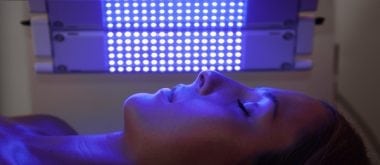Perimenopausal women are 40% more likely to suffer from depression than women who do not experience menopausal symptoms, according to a new study led by UCL researchers. The study, published in the Journal of Affective Disorders, provided a meta-analysis of seven studies involving 9,141 women from around the world (including Australia, USA, China, the Netherlands and Switzerland) to find out whether different stages of menopause are associated with a different risk of depression.
How Mental Health of Perimenopausal Women Suffers
Perimenopause usually occurs about three to five years before the onset of menopause. During this phase, women’s estrogen and progesterone levels begin to fluctuate, leading to mood swings, irregular menstrual cycles and other menopausal symptoms, including increased depressive moods. This phase of menopause lasts until one year after a woman’s last menstrual period and can extend over a total period of four to eight years.
The researchers found that perimenopausal women have a significantly higher risk of experiencing depressive symptoms and being diagnosed with depression compared to pre-menopausal women. In post-menopausal women, the risk of depression was not significantly higher than in pre-menopausal women.
Symptoms were measured using standardized, internationally recognized self-report instruments, including the Patient Health Questionnaire PHQ-9 (which takes into account factors such as lack of interest in activities, sleep problems and low mood). According to lead author Dr. Roopal Desai (UCL Psychology & Language Sciences), this study shows that women are significantly more likely to experience depression during perimenopause than before or after this phase.
According to the researchers, these findings underline the importance of recognizing that women are more susceptible to depression at this stage of life. They also highlight the need to support women and provide screening to help them address their mental health needs effectively.
The new study follows hot on the heels of an earlier publication by the researchers, which found that therapy – such as mindfulness and cognitive behavioral therapy – could be an effective form of treatment for non-physical symptoms of menopause. The findings show just how much the mental health of perimenopausal women can suffer during this time. We need more awareness and support to ensure they receive appropriate help and care both medically, at work and at home.
Depression: A Women’s Disease
Depression occurs twice as often in women as in men. Research suggests that certain RNA molecules that are more common in women may be responsible. Scientists at the University of California have in turn identified the reason why women may not respond as well as men to treatment for depression. Previous analyses of the nucleus accumbens showed that various genes were switched on or off in women, but not in men, who were diagnosed with depression. These changes may have caused the symptoms of depression, or the experience of being depressed may have altered the brain – a clue as to why antidepressants have not been successful in some women.
While there are treatments for depression, sometimes these treatments don’t work for many who use them. Researchers at the University of California, Davis, have teamed up with scientists at Mt. Sinai Hospital, Princeton University and Laval University, Quebec, to understand how a specific part of the brain, the nucleus accumbens, is affected in depression. The nucleus accumbens is important for motivation, response to rewarding experiences and social interactions – all areas that are impaired in depression. Previous analyses of the nucleus accumbens showed that various genes were switched on or off in women, but not in men, diagnosed with depression. These changes could have caused the symptoms of depression, or the experience of being depressed could have altered the brain. To distinguish between these possibilities, the researchers studied mice that had experienced negative social interactions, which cause more depression-related behavior in females than in males.
In the rodent model, negative social interactions altered gene expression patterns in female mice that mirrored those observed in women with depression. After finding similar molecular changes in the brains of mice and humans, the researchers selected a gene, Regulator of g protein signaling-2, or Rgs2, for manipulation. This gene controls the expression of a protein that regulates neurotransmitter receptors on which antidepressants such as Prozac and Zoloft act. In humans, less stable versions of the Rgs2 protein are associated with an increased risk of depression. Therefore, the researchers were curious to see if increasing Rgs2 in the nucleus accumbens could reduce depression-related behaviors. When they experimentally increased Rgs2 protein in the nucleus accumbens of mice, they effectively reversed the effects of stress on these female mice and found that social approach and preference for favorite foods increased to levels observed in females not exposed to stress.
These results point to a molecular mechanism that contributes to the lack of motivation often observed in depressed patients. Reduced function of proteins such as Rgs2 may contribute to symptoms that are difficult to treat in people with mental illness, and findings from basic science studies such as this one may aid the development of pharmacotherapies to effectively treat people with depression, the researchers said.






